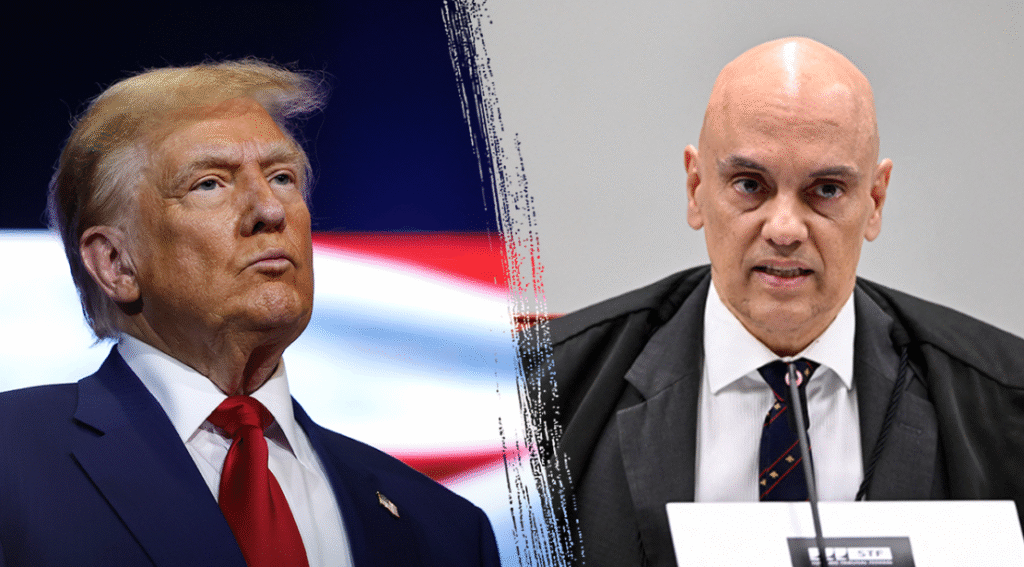The U.S. Treasury Department has imposed sanctions on a high-profile Brazilian judge for alleged human rights violations, sparking political tension between the two nations. This move, tied closely to the trial of former Brazilian President Jair Bolsonaro, has raised questions over judicial independence, international diplomacy, and political accountability in Brazil.
Who Is the Judge and What Is the U.S. Claiming?
The judge at the center of the controversy is Wilson Issao Koressawa, who has played a key role in overseeing sensitive political cases in Brazil, including matters linked to Bolsonaro. The U.S. Department of the Treasury’s Office of Foreign Assets Control accused Koressawa of involvement in serious human rights abuses. These include allegedly coercive legal practices, political bias, and abuse of authority, particularly against political dissidents and protestors.

The Treasury cited evidence suggesting that Koressawa systematically used his judicial power to suppress political voices and that his courtroom actions were in violation of internationally recognized human rights norms. While the specific incidents remain under diplomatic discussion, the sanctions are a clear signal of U.S. concern over democratic backsliding in Latin America.
Impact on U.S.–Brazil Relations and Bolsonaro’s Legal Troubles
The sanctions come at a particularly delicate time for Brazil. Jair Bolsonaro, the former president known for his far-right policies and controversial statements, is currently facing multiple legal battles, including charges of electoral misconduct and abuse of power. As a result, the U.S. move is likely to be interpreted by Bolsonaro’s supporters as foreign interference. In turn, this perception could potentially fuel political unrest, especially among those who already distrust external involvement in Brazil’s judicial affairs.
For the current Brazilian administration, led by President Luiz Inácio Lula da Silva, the sanctions present a diplomatic challenge. While Lula’s government has publicly committed to strengthening democratic institutions and transparency.
What the Sanctions Entail and Their Broader Implications
Under the sanctions, the U.S. government has frozen any assets belonging to Judge Koressawa that are based in the United States, and it has barred American entities from doing business with him. Moreover, officials have placed the judge on a list that could trigger further international restrictions, depending on how Brazil’s allies and other human rights organizations respond.

These measures are part of the Global Magnitsky Act, a U.S. law allowing the government to target foreign officials involved in corruption or human rights violations. The inclusion of a Brazilian judge on this list is rare and signals a growing willingness by Washington to take a more assertive stance in Latin American politics.
Attention on Brazil and the International Community
The Brazilian judiciary has so far remained silent on the sanctions, but legal experts and political commentators within the country are divided. Some argue the move undermines Brazil’s sovereignty and judicial independence, while others see it as a necessary check on excessive power.
Human rights organizations, particularly those operating in South America, have welcomed the sanctions. They argue it sets a precedent for holding powerful officials accountable, even across borders. Meanwhile, critics of Bolsonaro view the development as part of a broader push for justice and democratic safeguards in Brazil.


 Frosty Relations: Canada’s Growing Discontent with the U.S.
Frosty Relations: Canada’s Growing Discontent with the U.S.  US-Brazil relations reach new low as spat intensifies
US-Brazil relations reach new low as spat intensifies  Trump Threatens Brazil with 50% Tariff Over Bolsonaro Trial
Trump Threatens Brazil with 50% Tariff Over Bolsonaro Trial  Pakistan Admits ‘Dirty Work’ for U.S., Sparks Global Outrage
Pakistan Admits ‘Dirty Work’ for U.S., Sparks Global Outrage  China Warns Countries Against Siding with U.S. in Trade War
China Warns Countries Against Siding with U.S. in Trade War  Florida State University shooting suspect
Florida State University shooting suspect